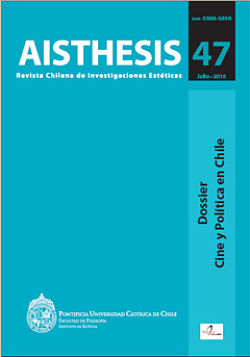Strategies for (Not) Forgetting: Notes on Two Chilean Documentary Films of the Post-Dictatorship
Main Article Content
Abstract
The return to democracy saw a growing number of documentary fi lms interested in keeping the memory of the dictatorship alive. Although traditionally characterised by their commitment to social issues, recent documentaries shifted to narratives centered on the private sphere.Through autobiographical stories, fi lmmakers of the post-dictatorship generation have developed new expressive ways to refer to this cultural trauma. This article focuses ontwo recent fi lms –Postage: A Visual Letter (2008) and The Burn (2009)– to explore the different strategies that fi lmmakers adopt to merge their personal refl ections on memory and identity with the collective experience of the dictatorship. Although not precisely ‘second generation’ accounts, they will be understood as ‘postmemory’ narrations that critically address the recent past and exhibit its remnants today.
Downloads
Article Details

This work is licensed under a Creative Commons Attribution-NonCommercial-ShareAlike 4.0 International License.
All contents of this electronic edition are distributed under the Creative Commons license of "Attribución-shareAlike 4.0 Internacional" (CC-BY-SA). Any total or partial reproduction of the material must mention its origin.
The rights of academic works published in this publication belong to their authors., who grant to AISTHESIS: Revista Chilena de Investigaciones Estéticas the license for its use. The management of the permits and the authorization of the publication of the images (or of any material) that contains copyright and its consequent rights of reproduction in this publication is the sole responsibility of the authors of the articles
